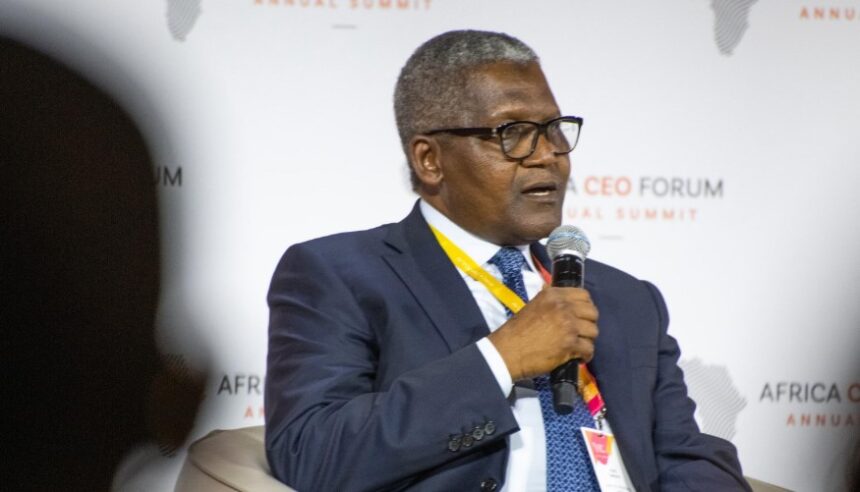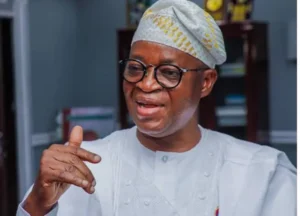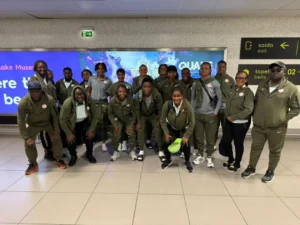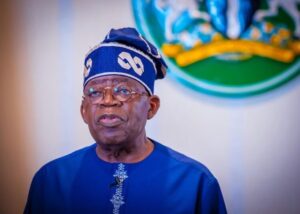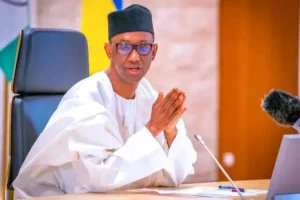Many Nigerians don’t know that they pay much less for petrol compared to people in other West African countries. Aliko Dangote, the President of the Dangote Group, said Nigerians pay only about 55% of what others pay for petrol.
Dangote also explained that his refinery has helped bring down fuel prices in Nigeria. Right now, petrol is sold for about 815 to 820 naira per litre at his refinery. This price is much lower than in neighboring countries.
This information came during a visit by Dr. Omar Touray, the President of the Economic Community of West African States (ECOWAS), and his team to Dangote’s huge refinery. The refinery can process 650,000 barrels of oil every day.
Dangote said that encouraging trade between African countries is very important. His refinery has helped reduce the cost of petrol and other products, which benefits many parts of the Nigerian economy.
When the refinery started making diesel last year, the price dropped quickly from 1,700 naira to 1,100 naira per litre. The price has gone down even more since then. This price drop has helped many businesses like mining and farming, making their work easier and cheaper.
He also pointed out that petrol in Nigeria is much cheaper than in nearby countries. For example, in other countries, petrol costs about 1,600 naira per litre, but at the Dangote refinery, it sells for around 815 to 820 naira.
Dangote mentioned that there is a bigger project connected to the refinery that has not yet been announced. He assured Nigerians that the refinery was built for them and that they will continue to benefit from it.
During the visit, Dangote shared the challenges they faced and the progress made in building what is now the world’s largest single refinery.
He said Africa needs to stop relying on importing goods because that slows down development. The refinery is proof that Africa can produce big projects that meet global standards.
Dangote also responded to critics who said the refinery couldn’t produce enough fuel for Nigeria and other countries. He said the refinery can meet the fuel needs of Nigeria and West Africa.
The ECOWAS officials came to see the refinery for themselves and to encourage other African countries to build similar large industrial projects.
Dangote explained that local refining helps lower fuel prices, making fuel more affordable and reducing dependence on imports.
The ECOWAS President called the refinery a sign of hope for Africa’s future. He said it shows how private companies can help grow industry in the region.
He said the visit gave him hope and told people who don’t believe in Africa to come see the refinery. It shows where the continent should focus its efforts.
The ECOWAS leader praised Dangote for his trust and vision for Africa. He said this project is exactly the kind of work the continent needs.
The refinery produces fuel that meets strict environmental rules, which is important because many imported fuels do not meet these rules and can harm health and the environment.
He added that it is wrong to keep importing low-quality fuel when a company like Dangote’s can make better fuel. He said the private sector must lead industrial growth in West Africa.
The ECOWAS President called for stronger cooperation between governments and businesses. He said policies should support the real needs of African industries.
He said this visit helps ECOWAS leaders understand the challenges faced by private businesses.
As ECOWAS marks 50 years, the community wants to work closely with private businesses to create a good environment for them.
Touray said decisions about business should be made with direct input from companies, not from far away.
He said West Africa needs an industrial plan to fight big problems like youth unemployment, poverty, and insecurity.
The ECOWAS leader promised to help companies like Dangote’s reach bigger markets across West Africa. He encouraged other African countries to build infrastructure that benefits the entire continent.
He congratulated Dangote Group and promised ECOWAS will help open the market for them and possibly all Africa.
The visiting team included several key ECOWAS officials in charge of infrastructure, energy, services, private sector development, and the President’s staff.
